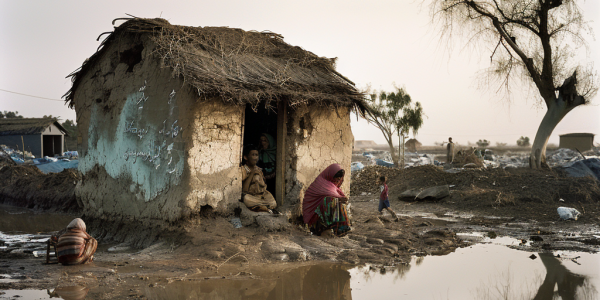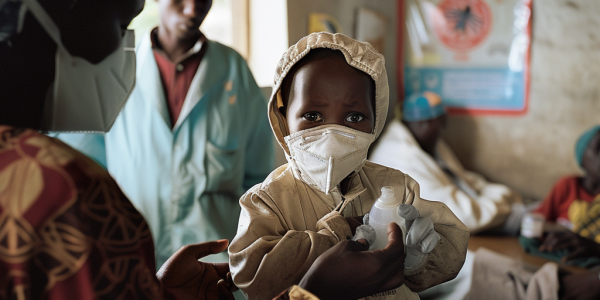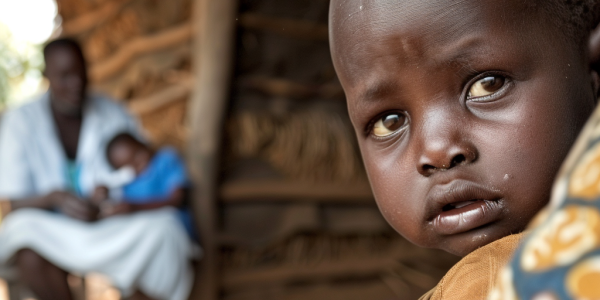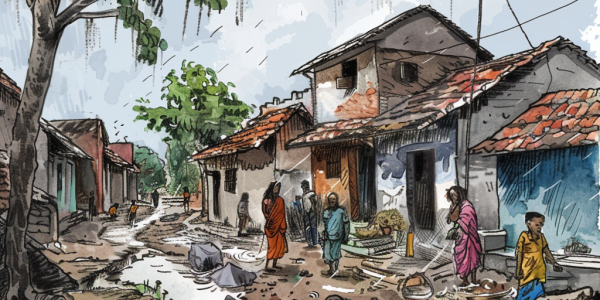Pakistan’s Sindh Province Faces Ongoing Health Crisis After Devastating Floods
In the wake of the devastating 2022 floods, Pakistan’s Sindh province faces a severe public health crisis with a surge in waterborne diseases like malaria and cholera. Families, especially in rural areas like Sujawal, struggle with limited access to clean water and healthcare. Health officials warn of a potential emergency as the situation worsens, highlighting the urgent need for improved sanitation and healthcare resources to protect vulnerable communities.
Dengue Cases Surge Past 4,000 in Delhi Amid Rising Vector-Borne Diseases
The Municipal Corporation of Delhi (MCD) reports over 4,000 dengue cases in 2024, with a significant spike in October. The rise in vector-borne diseases, including malaria and chikungunya, prompts officials to urge residents to eliminate mosquito breeding sites. With three fatalities reported this year, public health measures are critical as temperatures drop. Stay informed and proactive to protect against these health threats in Delhi.
Severe Malaria Outbreak in Ethiopia: Over 7.3 Million Cases Reported
Ethiopia is facing a severe malaria outbreak, with over 7.3 million cases and 1,157 deaths reported in 2024. The situation is dire, particularly for children under five, and exacerbated by healthcare delivery challenges in conflict-affected regions. The World Health Organization has assessed the national risk as high, highlighting the urgent need for targeted interventions and community engagement to combat this public health crisis.
Egypt Declares Malaria Eradicated After Millennia of Struggle
Egypt has officially eradicated malaria, a disease that has plagued the nation for millennia. This achievement highlights the effectiveness of public health initiatives, including the distribution of insecticide-treated bed nets and community education. The elimination of malaria is expected to boost Egypt’s economy and improve quality of life, serving as an inspiration for other countries facing similar health challenges. Continued vigilance and investment in public health are essential to prevent any resurgence of this mosquito-borne illness.
Insecticide Bed Nets Linked to Resurgence of Household Pests, Study Finds
Recent research from North Carolina State University reveals that insecticide-treated bed nets, while effective in reducing malaria transmission, have unintentionally led to a resurgence of household pests like bed bugs and cockroaches. As these pests develop resistance to insecticides, communities face increased malaria rates and growing distrust in pest control methods. This study highlights the complex relationship between pest management and public health, emphasizing the need for innovative solutions to address both malaria prevention and household pest issues.
Urgent Warning: Drug-Resistant Malaria Threatens East Africa
A recent study in the journal Science highlights alarming mutations in malaria parasites, indicating rising drug resistance in East Africa. Over 10% of malaria cases in countries like Ethiopia and Uganda show resistance to artemisinin, threatening the effectiveness of Artemisinin Combination Therapies (ACTs). With malaria claiming over 1,000 children’s lives daily in Africa, urgent action is needed from policymakers and global organizations to combat this growing public health crisis.
Alarm Over Rising Drug-Resistant Malaria in Africa
A recent study published in Science warns of the alarming rise of drug-resistant malaria in Africa, threatening millions of lives. Researchers found artemisinin resistance in over 10% of malaria cases in East Africa, raising concerns about the effectiveness of Artemisinin Combination Therapies (ACTs). Experts call for urgent action and increased investment in malaria research to combat this emerging health crisis.
Climate Change Extends Dengue Threat in South Asia
Rising temperatures and longer monsoons in South Asia have transformed dengue fever into a year-round threat, breaking the traditional seasonal pattern. Experts warn of unprecedented outbreaks and rising death tolls, emphasizing the evolving danger posed by dengue. Climate change has created ideal conditions for Aedes mosquitoes to thrive, spreading the virus beyond the monsoon season. Effective strategies and proactive measures are crucial in combating this continuous health threat in the region.
Artemisinin: A Potential Game-Changer in PCOS Treatment
Discover how an ancient Chinese herbal extract, artemisinin, may revolutionize the treatment of polycystic ovary syndrome (PCOS) by regulating testosterone production in the ovaries. Learn about the potential of artemisinin as a novel therapeutic approach for PCOS and its broader health implications beyond just ovarian function.
AI-enhanced Mosquito Surveillance to Combat Malaria in Africa
University of South Florida researchers are using artificial intelligence to revolutionize mosquito surveillance in the fight against malaria in Africa. With a $3.6 million grant, the team aims to establish an International Center for Excellence for Malaria Research in west-central Africa, focusing on strategies for eradication and elimination. The project will also benefit the United States, particularly Florida, by monitoring mosquito-borne illnesses. Carney and Chellappan will lead the image-driven mosquito surveillance using mosquitodashboard.org, a global platform they created in 2022.










